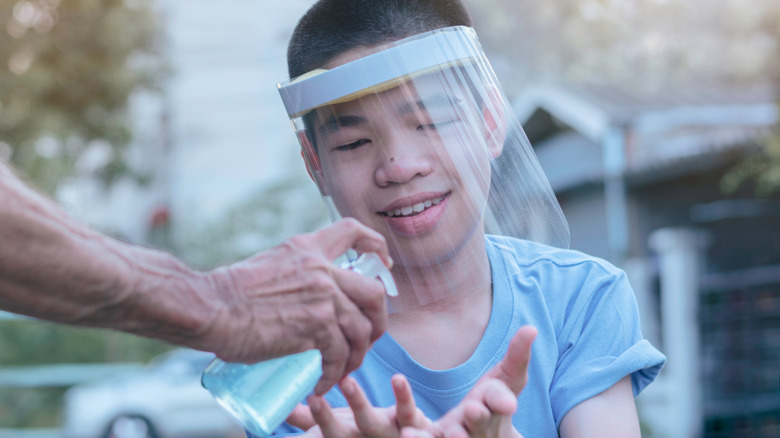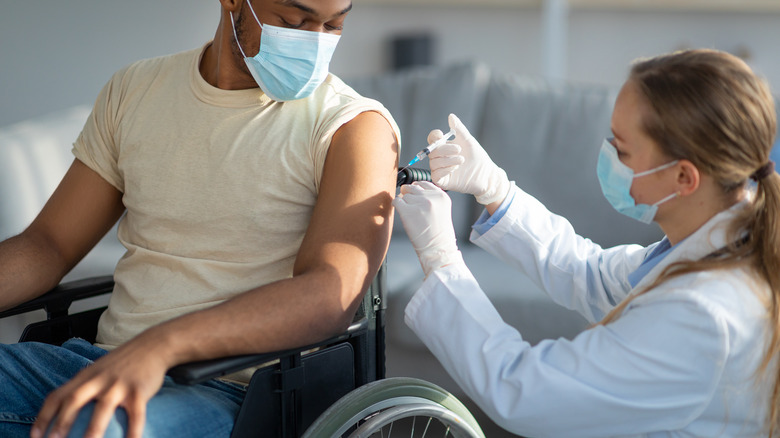What's The Best Protection Against Long COVID?
As the battle with COVID-19 wears on, we are beginning to learn more about its potential long-term effects. Long COVID, also referred to as post-COVID or chronic COVID, occurs when symptoms persist for at least four weeks after getting infected and can last for months or years after your initial bout with the virus, per the Centers for Disease Control and Prevention (CDC).
Symptoms of long COVID are wide-ranging but most commonly include fatigue, fever, joint pain, shortness of breath, coughing, bouts of dizziness, sleep disturbances, and brain fog, per CDC. Those with long COVID may also report a surge in symptoms after engaging in prolonged physical or mental exertion.
While long COVID can affect anyone who has previously been infected with COVID-19, those who are unvaccinated, who became severely ill with the virus, and those who had preexisting health issues before contracting COVID are thought to be more susceptible to its long-term effects.
While living with long COVID can be incredibly challenging, new research is highlighting the best ways to protect yourself from it.
Getting vaccinated can help prevent long COVID
Getting vaccinated is one of the best ways to prevent and protect against long COVID. Dr. Leora Horwitz, a professor of population health and medicine at New York University's Grossman School of Medicine told WebMD, "You're more likely to have long COVID with more severe disease, and we have ample evidence that vaccination reduces the severity of disease. We also now have quite a lot of evidence that vaccination does reduce your risk of long COVID — probably because it reduces your risk of severe disease."
A 2022 study published in The BMJ took a look at the effects of the COVID-19 vaccine on those who had previously been infected with the virus. After receiving the first vaccine dose, the chances of participants developing long COVID dropped by 13% and an additional 9% after the second dose. While study authors state that a longer follow-up is needed to further demonstrate the effects of the vaccine on long COVID, these initial results show promise in helping us to understand how to best provide protection from the long-term effects of COVID-19. According to WebMD, some studies suggest that vaccines can reduce the risk of long COVID by up to 80%.


